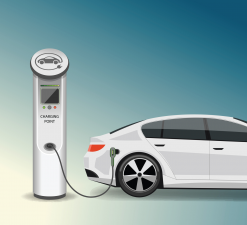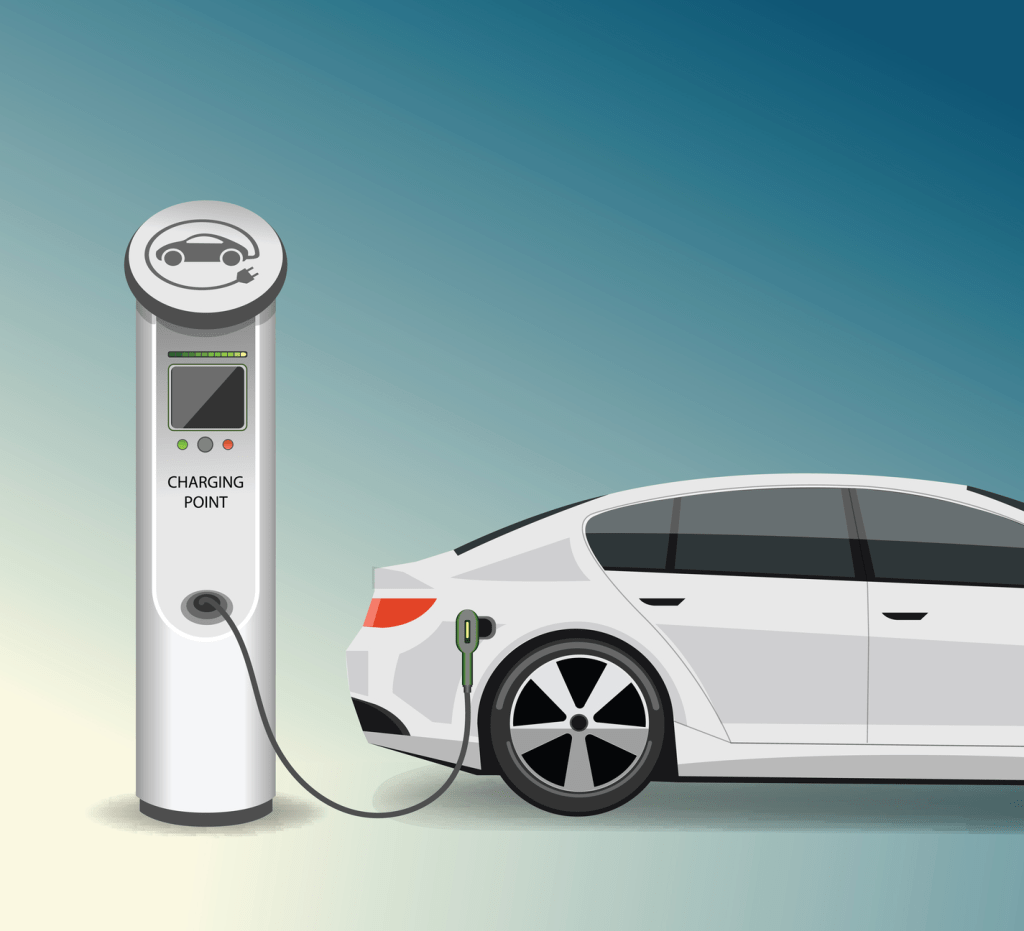 Written by Dan Armes of ServoPro
Written by Dan Armes of ServoPro
Some people are in the industry are calling it a threat, others are calling it an opportunity. Whatever way you look at it, Electric Vehicles (EV’s) are going to dramatically change the way we do business in the retail fuel industry.
Fuel is the biggest reason consumers visit a petrol station. Take the demand for fuel away and we would see petrol stations struggling to find ways to get customers in the door.
The second biggest reason consumers visit their local petrol station is coffee. We are seeing proactive fuel retailers who are ramping up their coffee offer and looking to diversify their business in order to attract new customers with the impending drop in fuel sales.
There are a lot of questions around EV’s and how they will impact the retail fuel industry. There is a lot of confusion around the actual EV’s themselves, as well as how we are going to change as an industry to make sure it is an opportunity and not a threat.
Let’s look at the 10 most frequently asked questions from ServoPro members …
- Do EV’s need servicing?
EV’s do not have a traditional combustion engine which need regular servicing. The Tesla Model S only has 17 moving parts under the bonnet. EV’s don’t have oil, oil filters, spark plugs, fuel filters or exhaust systems to service.
A typical EV service would consist of checking the tyres, brakes, air filters and the computer system.
The Tesla Model S has regenerative braking, which means the car slows down when you take your foot off the accelerator, this requires much less servicing. Tesla recommends that their vehicles are inspected every 12 months or 20 000 km.
- Are EV’s safe?
The fact that EV’s don’t have a combustion engine with flammable liquid such as fuel on board means they are much safer. This makes them much safer in a head on collision. Tesla vehicles have a very low centre of gravity which greatly reduces the chances of a roll over.
Tesla have the highest safety rating of any car ever made. Other EV’s on the market have similar safety ratings.
- What sort of range can you expect from an electric car?
Depending on the type of car and battery that has been installed in the car the range will vary. Generally the higher the capacity of the battery the further the range is.
Technology is improving rapidly in EV’s and the range of most electric cars available in 2019 is close to 600 km. For example, the 2019 Tesla Model S has a range of 595 km. Jaguar, Hyundai and other manufacturers are manufacturing EV’s with similar ranges.
With most EV models you will find that the larger the battery the more expensive the car. As mentioned previously, the larger the battery the better the range.
- How long does it take to charge an electric car?
Again, this depends on the type of car and the type of battery. It also depends where you are charging the EV. EV’s can be charged at a range of locations. We are seeing charging stations at hotels, carparks, parks and obviously petrol stations.
Tesla recommends charging their vehicles up to 90% by topping up the battery at home every night. At home where three-phase power is available, a Tesla Model S can be fully charged in around 5 hours. Where three-phase power isn’t available the time taken to fully charge a Tesla Model S is around 12 hours.
The chargers that you typically see at Petrol Stations can charge much faster and generally charge a Tesla Model S to 50% in 20 minutes, 80% in 40 minutes and 100% in 75 minutes. There are new superchargers coming out soon which will charge much faster.
We are seeing most consumers only using a charging station to top up their batteries in order to get them to their destination.
- How long do the batteries last?
Batteries in EV’s will last about 10 years. Like all batteries, over time, they lose the capacity to hold a charge. After 10 years the battery will only be able to hold around 70% of its original charge.
When it comes time for the battery to be replaced the old one is taken out and a new one installed.
- What is the performance like of an EV?
Unlike combustion engines, EV’s have instant torque. This means that electric motors don’t need to rev up through the gears. This makes them accelerate very quickly.
The Tesla Model S can go from 0 to 100 km in 3.2 seconds. Most people are surprised by the acceleration of EV’s.
- Does Australia have the infrastructure for EV’s?
Most EV owners charge their vehicles at home but Australia has a growing network of charging stations. Most EV drivers are using these charging stations to top up EV batteries to get them to their destination.
Charging stations can now be found in shopping centres, hotels and car parks to allow customers to top up their EV batteries.
As the technology of batteries improve and the range is extended there will be less need for EV batteries to be topped up.
- Can you tow with an EV?
Tesla demonstrated the towing capacity of their Model X by towing a Qantas 787 aircraft. The weight of the trailer or caravan would reduce the range of the vehicle as more power would be required.
- When will EV’s start to impact the fuel industry.
With EV’s becoming more popular it is only a matter of time before we see fuel sales start to decline in Australia. There are a lot of new petrol stations being built and very rarely are we seeing charging stations being installed.
Instead we are seeing fuel retailers starting to diversify their business options. The traditional petrol station is more and more looking like a food outlet and cafe as well as a convenience store. Petrol Stations are now being seen as a great location to drop off your dry cleaning and pick up parcels. We will see these dynamics change more and more over the coming years.
Fuel retailers who don’t look to diversify and continue to rely just on fuel as a draw card to attract customers will be left behind. There is plenty of opportunity to provide new products and services to customers. ServoPro members are benefiting from the opportunity to get up to date advice on the best ways to diversify and the variety of options available to service station owners.
- Should I install a charging station now?
ServoPro members who have EV charging stations at their sites are not seeing them used a great deal. This will change over time. There is a substantial cost involved to install charging stations so at this stage there is no urgent need to install this infrastructure at your site. We find there are many other, less financially draining options available to service stations owners which should be considered first.


This article is very Tesla orientated which is odd considering they are high end and no other EV brands can use a Tesla charging station. The interesting facts I have heard are:
Service every 100,000 km
7 moving parts
Exceptional safety (anti collision software built in)
Top-up is normally to 80% (because 80-100 is very slow)
Charging cost is approx 1/3rd of petrol/diesel
Range is approx 450km but expected to reach 900km within 5 years (with new solid state batteries)
EV’s are cheaper to build than petrol (but not likely to see this until around 2025)
Australia may not see the full range of EV’s or the full cost benefits because we are a RH Drive market with UK/Japan.
Reason is right hand drive cars are only around 1.5% of global car sales
Great article! And love the additions from commenter Rob Scott
Thanks for sharing this awesome blog with us.
In today’s day, all people want to save the environment.
An electric vehicle is helping to solve this problem with a feasible price and best technology.
More important topic post here.
Electric vehicles are helping to reduce fuel costs and greatly reduce the amount of global warming pollution.
It is a shortened acronym for an electric vehicle. EVs are vehicles that are either partially or fully powered on electric power
An automobile, e-scooter, e-bike, or other vehicle having an electric motor that is fully or partially powered by batteries.
EV’s have a battery instead of a gasoline tank, and an electric motor instead of an internal combustion engine.
Thanks for sharing this blog with us.
BSN specializes in connecting exceptional talent with extraordinary opportunities.
With a commitment to innovation and seamless communication, we bring you cutting-edge solutions that bridge gaps and empower businesses and individuals alike.